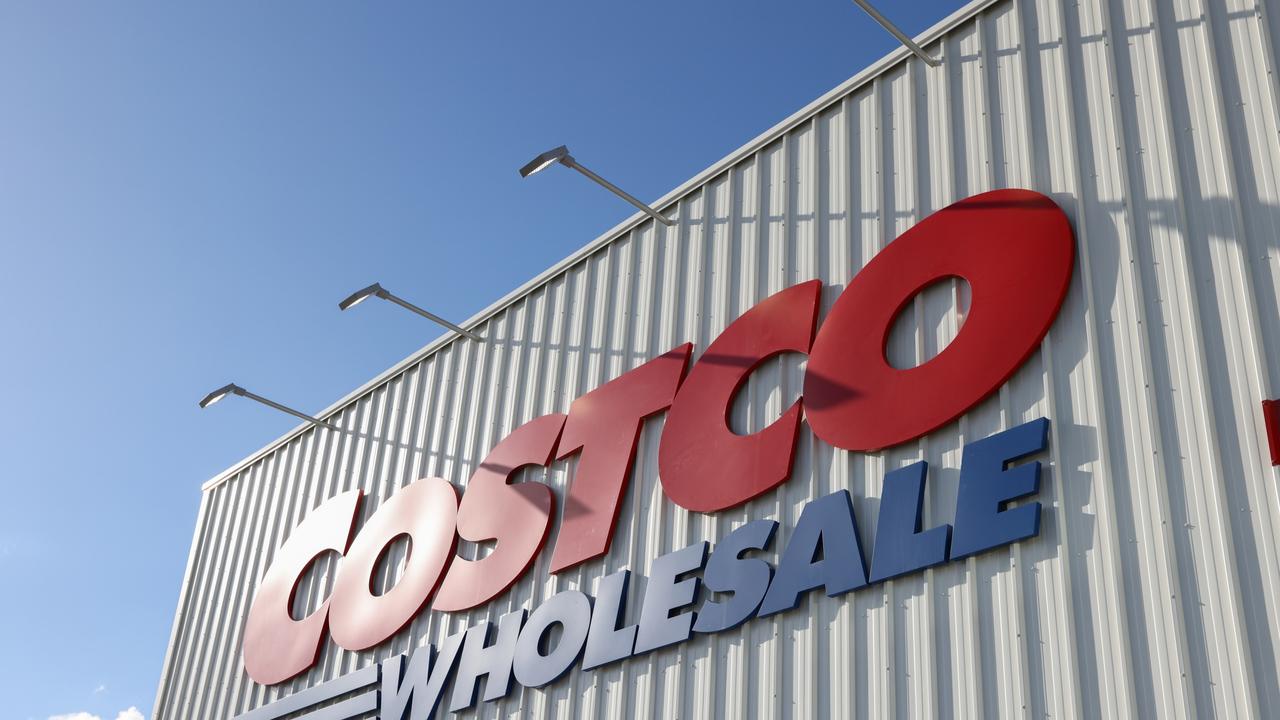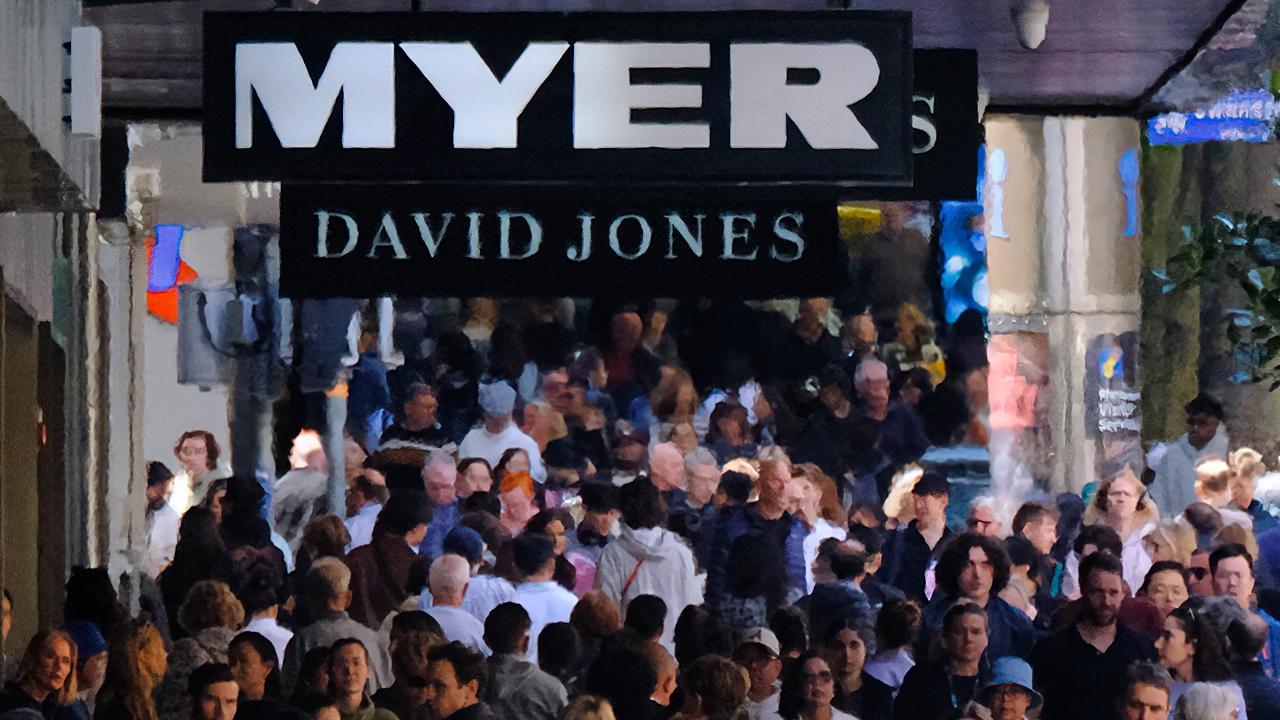Myer, David Jones: Move by insurers an ‘ominous’ sign of stores’ financial health
A quiet move, unnoticed by customers, threatens to strip shelves at Myer and DJs, stoking concerns about the stores’ ongoing viability.

It was the news Myer, only weeks after reopening its doors after a long coronavirus hibernation, didn’t need to hear.
A financial safety net was quietly being pulled from under the feet of suppliers to it and rival David Jones which had the potential to see shelves and racks emptied of stock and has some commentators contemplating if the move brings into question both firms’ ongoing viability.
In the highfalutin world of fancy brands, the lifeblood of Myer and DJs, financial products might not seem very chic. But one particular financial lifeline – trade credit insurance – is critical to ensure everyone along the supply chain gets paid, even if things go badly wrong.
Big firms, like QBE and Allianz, are now said to be withdrawing this insurance to the departments stores’ suppliers in what is being called an “ominous sign” for Australia’s retail grand dames.
An insurance expert told news.com.au it was “not good news” for the pair – but it also wasn’t contained to them and was a local symptom of a bigger global issue.
Both Myer and DJs say they are well able to pay their suppliers. David Jones told news.com.au insurers were taking too broad a view of the retail sector and had failed to “gain a direct understanding of our position”.
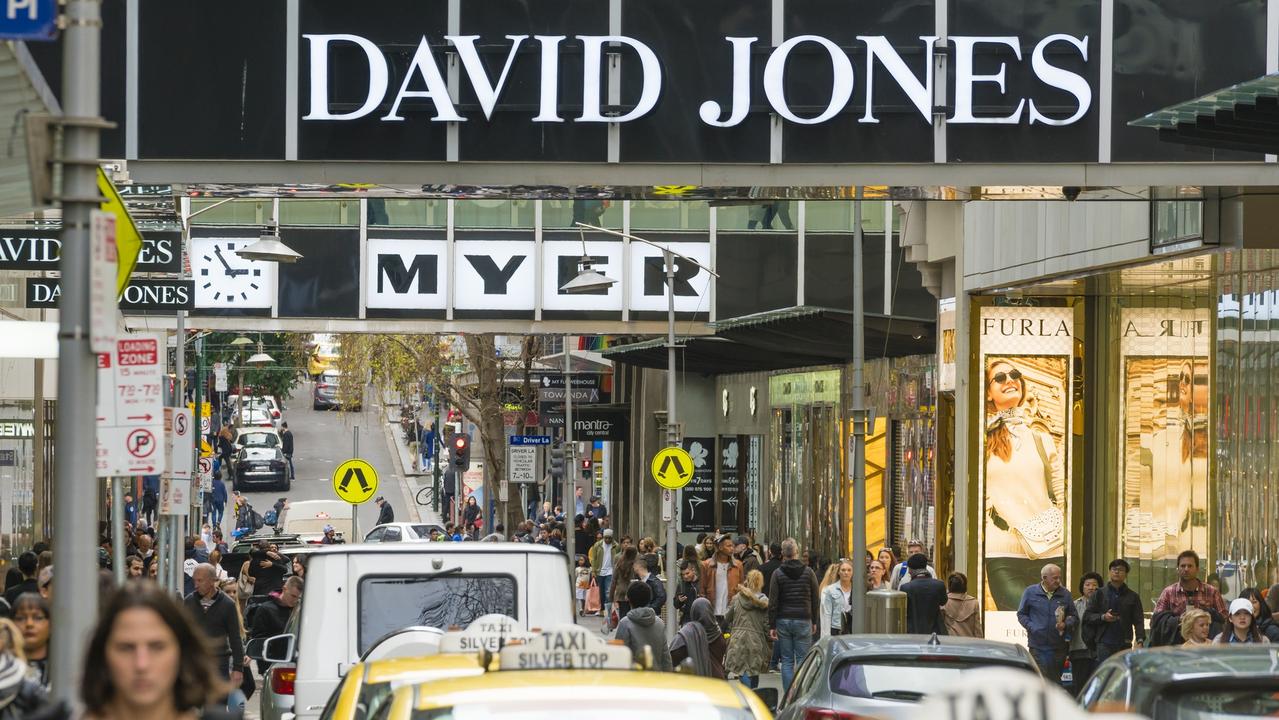
So, what is this insurance and why is it so vital in the world of retail?
“Trade credit insurance covers sellers against default by the buyer,” said Professor Harry Scheule of the University of Technology Sydney’s Financial Discipline Group.
“Often goods are sold, then shipped and then the buyer pays later. If Myer or David Jones failed to pay the seller then QBE will make a substitute payment for to the seller instead.”
RELATED: Rumours swirl of David Jones — Myer merger
In normal trade, department stores might get a delivery of fancy shoes but they wouldn’t pay the supplier for said stilettos and pumps until they had a chance to sell a few. According to insurer Euler Hermes, part of Allianz and another supplier of the cover, Australian firms take on average 55 days to pay for the goods they’ve received.
However, just as insurers don’t want to cover risky drivers, the firms also don’t want to cover risky businesses.
Last month, it emerged that local insurance heavyweight QBE would no longer provide trade credit insurance to suppliers to Myer and DJs.
The Age reported that QBE had concerns of the viability of the two and cover would be withdrawn by July 16.
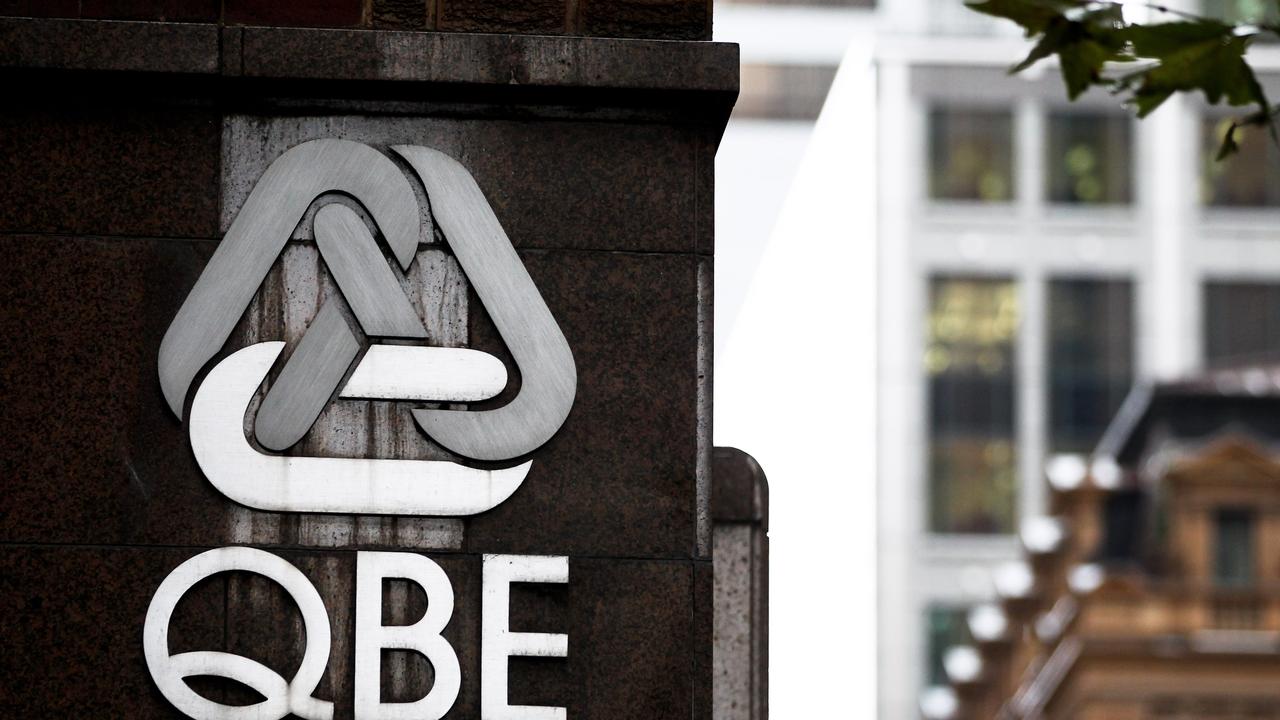
It’s since been reported four other big insurers have followed suit, removing some or all trade credit cover.
News.com.au contacted five large providers of trade credit insurance. Only one replied, but notably none denied they had scaled back the cover.
“This is not good news for Myer and David Jones as sellers are likely to insist on upfront payments,” said Prof Scheule.
“This will cause financial constraints on top of the current COVID-19 pressures.”

RETAILERS ALREADY STRUGGLING
According to Australian Bureau of Statistics data, sales in department stores sank by 14.9 per cent in April. That’s on top of a drop in sales by 2 per cent since 2015, as wallets tightened and some customers drifted away to Zara, H&M and online stores. But the fall has been steeper for Myer and DJs.
In a trading update in May, David Jones’ owner Woolworths South Africa (no relation to Australia’s Woolworths) said DJs sales had fallen by 36 per cent during March and April and it would close down some stores and sell others to reduce almost $500 million in debt.
David Jones has just spent $220 million sprucing up its Sydney CBD store which reopened just as lockdowns began.
Myer hasn’t issued a trading update which is making some analysts nervous. At its January half year results it reported pre-pandemic sales had fallen by almost 4 per cent, although it remains in the black. Unlike DJs, Myer closed its stores for almost two months. There are rumours sales have halved, even with a huge rise in online shopping.
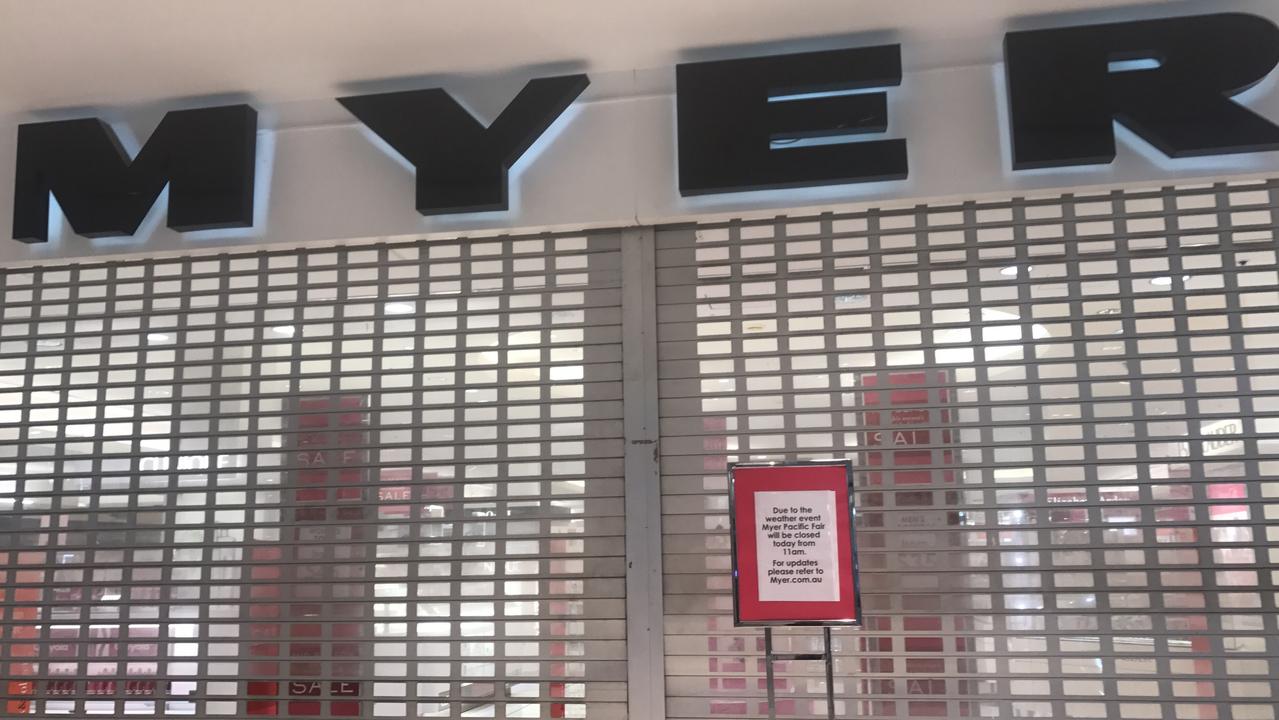
PERFECT STORM FOR MYER, DJS
Dr Louise Grimmer from the University of Tasmania’s School of Business and Economics, said the insurance pull back was an “ominous” sign.
“This represents a growing unease in retail, and an increasing lack of confidence in some sectors that Myer and David Jones are going to be able pay invoices and survive in the medium to long term.
“Department stores were already facing multiple challenges; now with the impacts of the pandemic it is becoming quite dire. All of these factors have coalesced into a perfect storm for Myer and David Jones” she told news.com.au.
“If suppliers start to withhold stock this will have an impact on consumer choice and may drive even more shoppers away from department stores towards specialty retailers,” she said.
“It may be that there is no longer room in the Australian market for two full-line department stores and only one will survive, or we may see moves again to merge the two businesses.
“Previous attempts to do that weren’t successful but COVID-19 may just accelerate thinking about consolidating the two.”
DISAPPOINTING MOVE
Myer did not respond to news.com.au’s questions. However, in a previous statement, a spokesman said the company “obviously don’t subscribe to QBE’s view around the future of department stores” and the move to suspend the insurance was “disappointing”.
“We have not changed payment terms during COVID-19 and have and will continue to pay our suppliers according to agreed terms.”
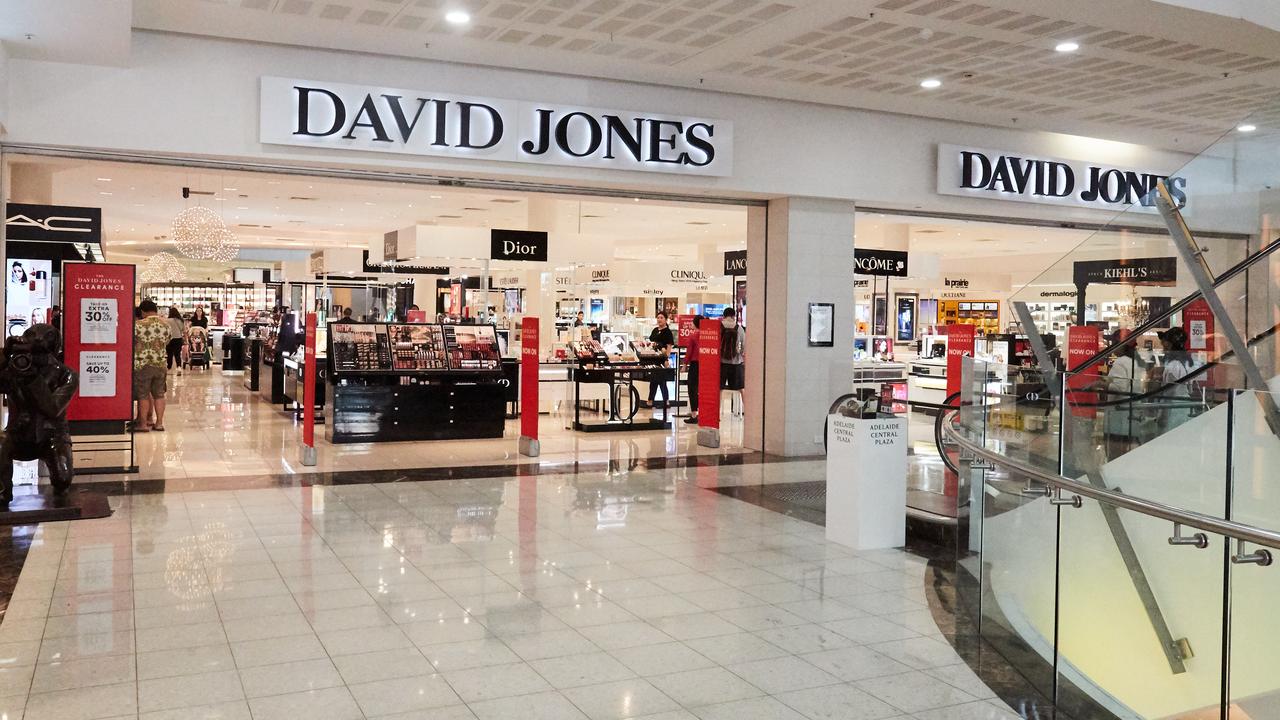
A David Jones spokesman told news.com.au that It was in a “strong financial position with strong cash balances”.
“We are working closely with trade credit insurers so that they can gain a direct understanding of our position rather than taking a broad sectorial view.
“We have strong relationships with our suppliers and all payments to suppliers have continued throughout COVID-19.”
GLOBAL ISSUE
Prof Scheule said that while the department stores were in the cross hairs in Australia right now, the suspension of this form of insurance was happening worldwide as financial firms got the jitters about the ability of a whole range of firms and industries to recover.
“The issue is global. It is further exacerbated by the fact that international shipments are delayed. This means that buyers need the guarantees for a much longer time period as they can only sell goods after reception and pay the sellers from the proceeds.”
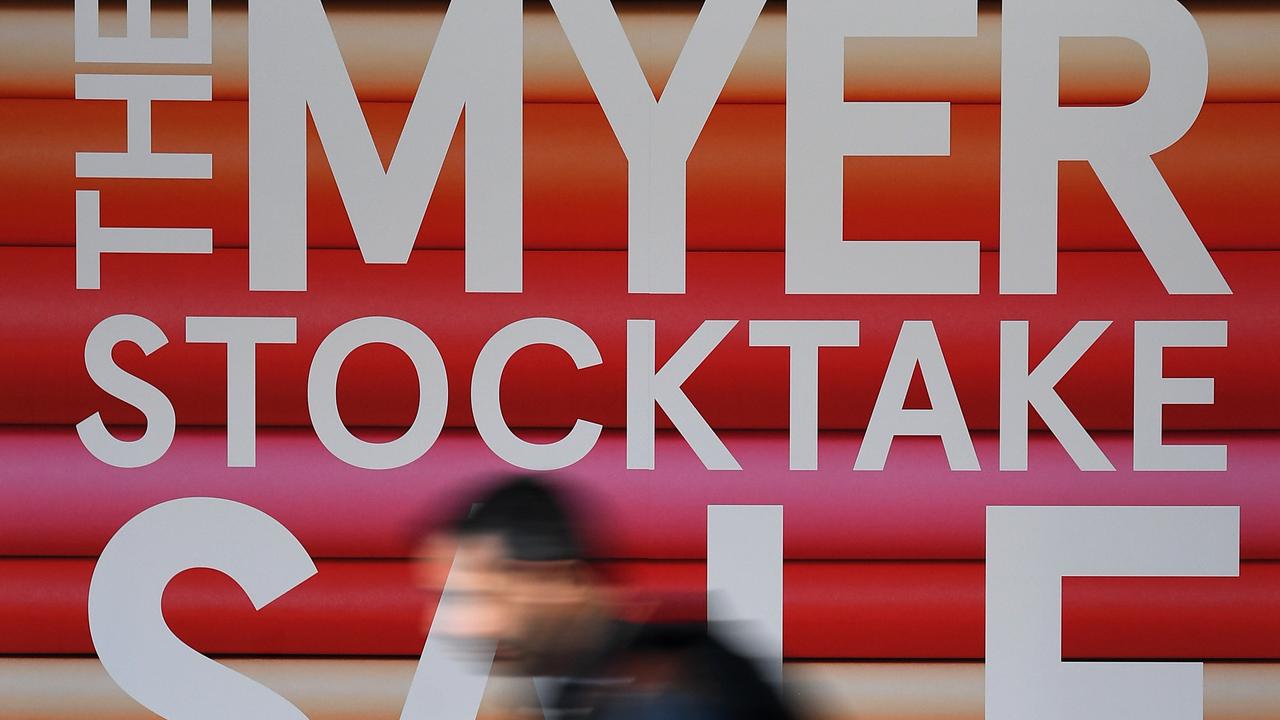
He also said some overseas insurers may be reducing their exposure to Australia rather then their home markets.
The UK Government has stepped in with a A$18 billion guarantee to protect credit insurance providers and encourage them to continue to offer cover.
“It may be helpful to offer the same in Australia,” said Prof Scheule.
Other retailers shouldn’t look on too smugly at Myer and DJs woes; if insurers continue to be edgy, it could be them next.


